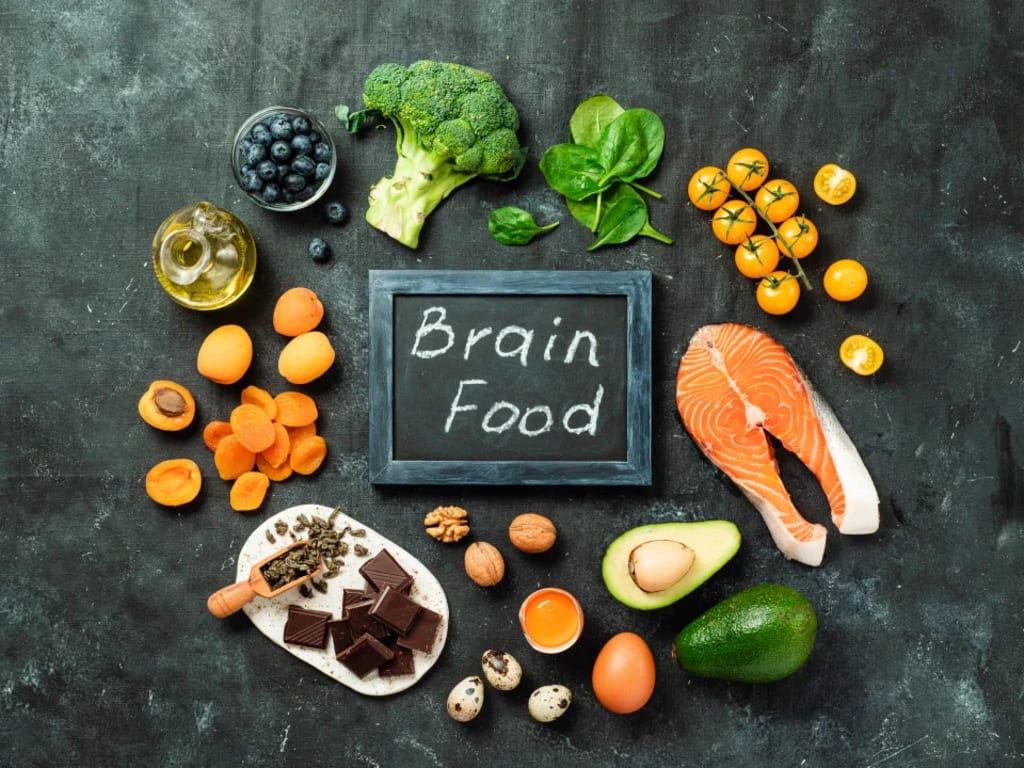Is it possible to consume "brain foods"? Specialists weigh in
The term 'brain food' has long been touted as the dinner plate items, which could help improve your brain health, memory and alertness.

It has long been claimed that certain foods on your dinner plate can enhance your memory, alertness, and general state of mind. This is known as "brain food."
Video sharing platform TikTok is currently awash with suggestions of #brainfoods, which reportedly help our minds stay sharp and young.
But while there have been several studies linking certain foods with brain protection, it is difficult to figure out for sure if the individual foods we eat are actually responsible for boosting our brain power.
With this in mind, we spoke to the neuroexperts at Brainworks Neurotherapy to debunk the so-called #brainfoods currently trending on social media and find out what we should actually incorporate into our diets to reap the brain benefits.
Green powders
Green powders are dietary supplements that contain powdered vegetables, fruits, and other nutrients, with brands claiming to offer a modern and convenient alternative for enhancing nutrient intake.
While not all brands make unrealistic claims about the purported benefits of green powders, some users push the supplement as a replacement for eating diverse fruits and vegetables, as a cure-all for bloating, and even claim that it can support brain health.
"Greens powders can be a practical way to supplement your diet with a variety of nutrients," explains James Roy, brain health expert at Brainworks Neurotherapy. "These nutrients contribute to overall wellbeing and can help fill gaps in the diet, particularly for individuals who may not consume enough fruits and vegetables regularly.
"Greens powders may also have the ability to boost energy levels due to high levels of vitamin B, the vitamin responsible for energy production in the body and stimulating the brain."
Though green powders can be a convenient way to boost nutrient intake, Roy says they should not be viewed as a replacement for whole fruits and vegetables in the diet.
"Whilst the beta-carotene, folate, lutein, Vitamin K, and other nutrients in green vegetables have brain benefits, such as helping to keep your brain sharper longer, not enough research has been undertaken to definitively claim that these benefits carry over into powdered form," he explains. "The processing and storage of green powders may affect the bioavailability and efficacy of these nutrients compared to whole foods."
Matcha
Matcha, a finely ground powder variant of green tea, has soared in popularity on TikTok recently, with users often sharing videos of iced or hot matcha latte recipes.
Some users claim that due to matcha containing L-theanine-aan amino acid that has been shown to relieve stress, improve mood, and help regulate sleeping patterns-mmatcha may have more brain benefits than simply drinking green tea.
"While both matcha and regular green tea offer health benefits, matcha may have a slight edge due to its higher concentration of certain compounds and the fact that you consume the entire tea leaf," Roy says.
"The combination of L-theanine and caffeine in matcha has been shown to have positive effects on brain function. However, the differences between matcha and green tea are not dramatic."
Roy says regular green tea offers many of the same cognitive benefits due to its rich content of antioxidants, L-theanine, and caffeine, without the potential cost and preparation complexities associated with matcha.
Avocados
Avocados have soared in popularity amongst the Gen Z demographic and are now a frequent addition to breakfast menus, smashed on sourdough, of course!
Some avocado fans claim it can support brain health, thanks to the substantial vitamin E content of the fruit.
Nutritional therapist at Nutrable, Caroline Hind, says that while there are health benefits to consuming avocados, there are more everyday food items you can add to your diet that will have the same results.
"Avocados aren't essential for brain health," she advises. "Eating a variety of nuts, seeds, and green vegetables can meet the body's vitamin E needs and also provide the brain-supporting B vitamins that are also found in avocado."
Açaí berries
Rumored to be packed with antioxidants and anti-inflammatory compounds, Açaí berries have become increasingly popular, with many flocking to Instagram to share their "Açaí bowls"-a"blended variation of the fruit, often topped with nut butters, other fruits, and granola. Some fans claim that açaí berries may protect your brain from neurodegenerative diseases and help to improve memory.
"Berry pigments (flavonoids) that give them their brilliant hues help improve memory and delay memory decline by two to three years," Roy explains. "Two servings of blueberries per week will keep your flavonoid levels up."
Roy says the specific "brain benefits" of açaí berries are the subject of ongoing research, and claims about their cognitive effects should be approached with caution.
"While açaí berries are rich in antioxidants, which are known to have potential neuroprotective properties, there is limited direct evidence to conclusively support claims of significant cognitive benefits from consuming açaí berries specifically," he adds.
Hind recognises the exotic berry as a beneficiary of health but notes that these same advantages can be found in alternative, cheaper, and more readily available fruits.
"When it comes to aça, other darkly-coloured berries can provide similar brain-boosting benefits," she explains. "Eating some blueberries, blackberries, blackcurrants, and raspberries every day is a good strategy if these more exotic berries are not available."
best foods for brain health
Green, leafy vegetables
"Leafy greens such as kale, spinach, collards, and broccoli are rich in brain-healthy nutrients like vitamin K, lutein, folate, and beta-carotene, which help keep you sharp and slow cognitive decline," Roy advises.
Fatty fish
Fatty fish are excellent sources of omega-3 fatty acids, which help keep Alzheimer's disease at bay. "Try to eat some salmon, cod, or canned light tuna at least twice per week," Roy recommends. "If you're not a fan of fish, an omega-3 supplement is a good substitute."
Tea and coffee
Caffeine offers more than just a short-term concentration boost; it helps with alertness over the long term and actually helps solidify new memories. "As with most things, too much can be harmful, but a cup or two in the morning can be quite helpful," Roy adds.
Walnuts
Nuts are excellent sources of protein and healthy fats, and one type of nut in particular might also improve memory. "Walnuts are high in a type of omega-3 fatty acid called alpha-linolenic acid (ALA), which is good for both the heart and brain," Roy explains.
About the Creator
A Peaceful Mind
Welcome to my corner of the internet, where stories come alive and products get honest reviews! ✨
Let's explore the world of imagination and discover hidden gems together!






Comments (1)
Well written!